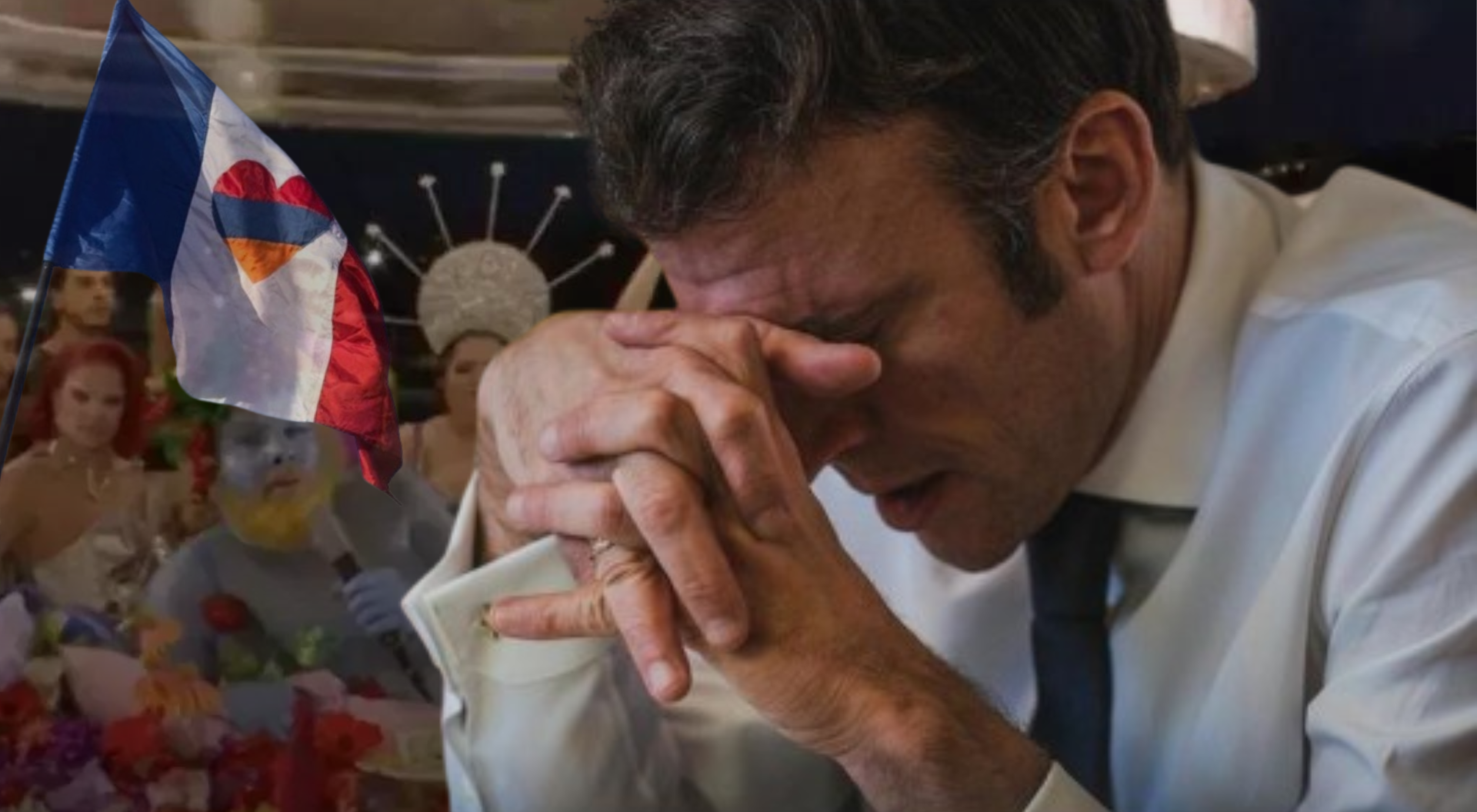Macron's decline as president: Leftist coalition moves to overthrow him

Recently, under the presidency of Macron, France has faced the most critical period of domestic and foreign policy. Today, the resolution signed by MPs calling for Macron's removal from the presidency is a clear sign of growing dissatisfaction with his leadership. The document was signed by 81 deputies from the New Popular Front bloc. 72 of them are deputies from the La France Insoumise party.
The reason for signing the resolution is Macron's unprecedented refusal to appoint a representative from the left-wing bloc to the position of prime minister. The deputies are invoking Article 68 of the French Constitution, which provides for the possibility of removing the president from office (impeachment) if they violate their duties.
Olympic Scandal
For instance, the issues that arose during the Paris Summer Olympic Games raised serious questions about the management abilities of Macron's government. Organizing large international events, especially one as significant as the Olympics, is always a test of a country's political and economic governance. The difficulties encountered during the organization of the Games in Paris — issues with logistics, security, and other social matters — severely undermined confidence in the government's effectiveness. We don't even need to mention the disrespect and unprofessional behavior towards Azerbaijani athletes during the Games.
Macron’s approach to these issues is widely perceived as weak and incompetent. The fact that deputies have signed a resolution demanding his removal reflects the consequences of these difficulties. It’s important to note that such major events as the Olympics are crucial for shaping a country’s global image, but Macron's government failed to be adequately prepared, allowing France’s reputation to be tarnished. However, this is only one part of the problems Macron has faced in domestic policy.
Colonial Aspirations in the South Caucasus
One of the most controversial aspects of Macron’s foreign policy is his stance on the Armenia-Azerbaijan conflict. Since coming to power, Macron has continued the tradition of close relations with Armenia. However, this policy has led to serious tensions in recent years with Azerbaijan. The Azerbaijani public and government have repeatedly criticized Macron’s pro-Armenian stance and invited him to take a more balanced approach to the region. Nevertheless, France seems determined to realize its colonial ambitions through Armenia by continuing to provide financial and military support.
It’s worth noting that Macron’s policy towards Armenia is not limited to the South Caucasus; this approach also negatively impacts France and the European Union's international standing. As one of the most influential members of the European Union, France has to maintain an objective and just position in global politics. However, Macron’s open support for Armenia undermines France’s credibility on the international stage. The preservation of balance within the European Union and any member state’s promotion of national interests on the global scene can damage the unity of the Union.
It’s also important to highlight that European Union countries are highly interested in close cooperation with Azerbaijan. With its dynamic development in all sectors — from oil, gas, and other natural resources to advances in green energy — Azerbaijan is becoming a more attractive partner for Europe. The decision to hold the COP conference in Azerbaijan after Abu Dhabi further reinforces this and guarantees that Azerbaijan’s name will be listed among developed nations.
Despite all these facts, France's Foreign Ministry has issued a stern travel warning for Azerbaijan and made unfounded claims that French citizens are being targeted in the country. This is the latest sign of the growing diplomatic tension between the two nations. With these accusations, France is attempting to keep its citizens away from Azerbaijan, though the Azerbaijani government has strongly rejected these claims as baseless. Such warnings not only weaken diplomatic relations between the two countries but also aim to tarnish Azerbaijan’s image on the international stage.
There is no doubt that Armenia’s humiliating defeat in the war with Azerbaijan and its dismal diplomatic relations with regional states are further frustrating France. As the Elysees palace continues to make statements that threaten Azerbaijan’s sovereignty, this further damages existing lukewarm relations and casts doubt on France's approach to democratic principles.
The current misguided political stance pursued by Macron, in fact, could lead to a serious political crisis in France. The president is facing failure in both domestic social issues and foreign policy, which has resulted in growing social inequality and unemployment, causing deep divisions within French society. Macron's failure to address domestic social and economic issues and pursue a balanced and just foreign policy further weakens trust in his presidency and in the French government. The deeper rifts between France and Azerbaijan could lead to diplomatic and economic disasters that may affect other countries in the region as well.
At this point, Macron’s most urgent task as president is to abandon colonial ambitions in other regions and focus on resolving France’s internal problems. Otherwise, the left-wing party members signing the resolution for his removal today could bring about a larger uprising tomorrow, leading to Macron's disgraceful downfall.
---
Follow us on Twitter @AzerNewsAz
Here we are to serve you with news right now. It does not cost much, but worth your attention.
Choose to support open, independent, quality journalism and subscribe on a monthly basis.
By subscribing to our online newspaper, you can have full digital access to all news, analysis, and much more.
You can also follow AzerNEWS on Twitter @AzerNewsAz or Facebook @AzerNewsNewspaper
Thank you!

